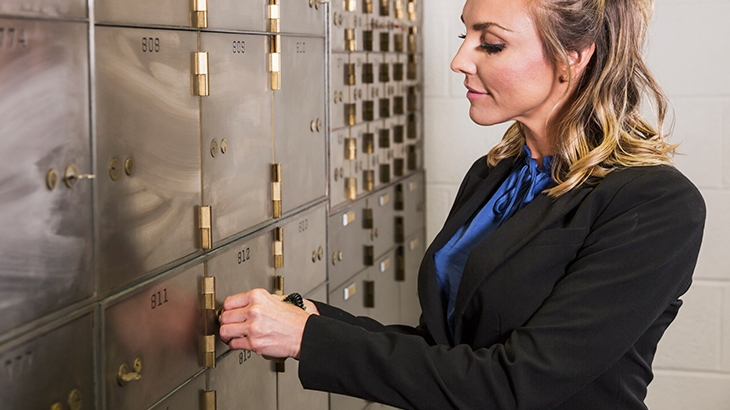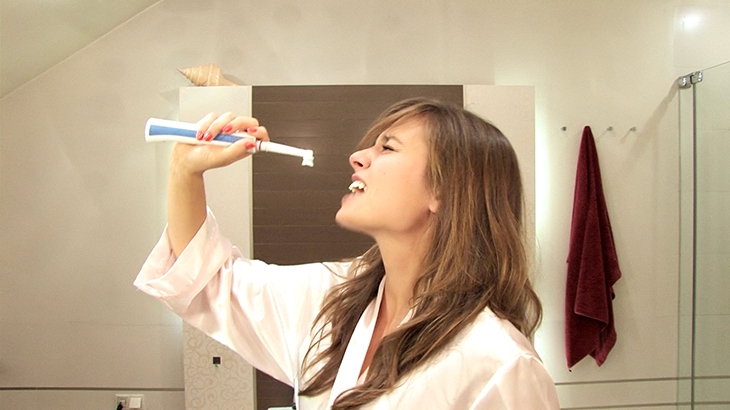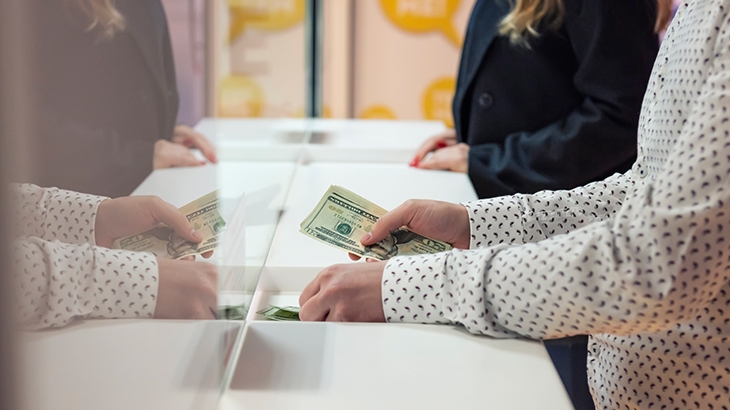Safe Deposit Box Top Tips (Including What to Keep and Not Keep)
Safe deposit boxes safeguard important documents and valuable or sentimental items. They're essentially tiny storage units offered by financial institutions in select branches, providing an extra layer of protection over home safes. They're cost-effective to boot! Before committing to renting a box, it's essential to understand the details and implications of having a safe deposit box.

- Purpose and Contents
They're ideal for storing legal documents like wills and property deeds. They are also great for things like valuable jewelry, family heirlooms, and digital backups like a USB drive containing important data or digital documents. Whatever you're thinking about keeping in yours if you decide to get one, remember they have limited space (different sizes are available), and you can only store what will fit inside the box.
A few things you may not want to store in your box are originals of your will or power of attorney documents that authorize others to transact business or make decisions about medical care on your behalf. For guidance on where to store your original will, check with an attorney about what is required or recommended based on state law. - Privacy and Box Access
Only authorized individuals can access safe deposit boxes, and your privacy is legally protected. Banks have strict guidelines for accessing box contents and often require dual key access. This means you will have to go to the bank to add an authorized user to your box with the proper paperwork; no one can snag your key and waltz into the bank to access your box. That being said, it's a good idea to make sure you don't keep identifying information on or near your box key, like the box number or the bank's name. - Fees and Rental Agreements
Renting a safe deposit box is a process, and you will need to sign an agreement with the bank to have access to one. Fees vary by the size of the box and are typically paid annually. Following a specific period of time after your fee was due and has not been paid, your box could be drilled and the contents sent to the state (depending on state law). You'll receive notice beforehand, but it's good to know the policies before signing up. - Box Availability and Size
Different sizes are available and are measured from the front of the box; all are the same depth, which means some boxes will be short and slim, and others will be tall and wider. WaFd Bank's safe deposit box sizes range from 2x5 inches up to 34x16 inches for the big boxes, which are more popular and may have a waiting list. Availability depends on location; not all sizes are available at every branch, and not all branches have safe deposit boxes. - Insurance Coverage
It's essential to know and remember that box contents are not insured by the FDIC or the bank, even if you keep cash in there (if money is not in a deposit account, it is not insured). Instead, call your homeowner or renter's insurance company to find out if you can add safe deposit box insurance to your policy to cover the contents. - Document Backup and Organization
Keep a list of all the items you have stored in your safe deposit box and, if applicable, how much they're worth. Consider keeping copies (digital or physical) in a secure location to access them in an emergency since those are rarely convenient, and you can only access your box during business hours. - What You Should Not Keep in a Safe Deposit Box
Safe deposit boxes are great for keeping important documents and other valuable items safe, but some things just don't belong. Below is just a short list of the things you should avoid having in your box:- Passports.
- Cash (it's only insured when deposited into an account).
- The only copy of an important document that's difficult to replace or for those who need access, like your power of attorney in case of a medical emergency.
- Valuables that are uninsured (safe boxes are secure, but the future is impossible to predict).
- Perishable or volatile materials.
- Anything illegal.
- Estate Planning Considerations
Think about informing trusted family members or the executor of your estate about your box and where it's kept. Suppose you have important documents in your box. In that case, it will prevent headaches and complications in finding important documents after your passing. It's also a good idea to find out your bank's policies about how your executor can gain access to your box after your passing, as those laws vary by state. - Legal Considerations
You can jointly rent a safe deposit box with one or more people who you would like to give unrestricted access. Make sure you and anyone who is jointly renting the box also understand state law and bank policy in case of legal disputes or death. Lastly, please note that your bank will not be responsible for anything removed by those authorized to access the box.
WaFd Bank is Here to Help
If you're in the market for a safe deposit box, we've got options! Many of our branches offer convenient safe deposit box rentals for a yearly fee. Use our search tool to find a local branch with safe deposit boxes near you (just check a box and search). WaFd also offers a variety of checking and savings accounts that come with all the tools and services you need to manage your finances. Apply online, give us a call at 800-324-9375, or visit your neighborhood branch to open yours.
Did you find this article helpful? Share it!


